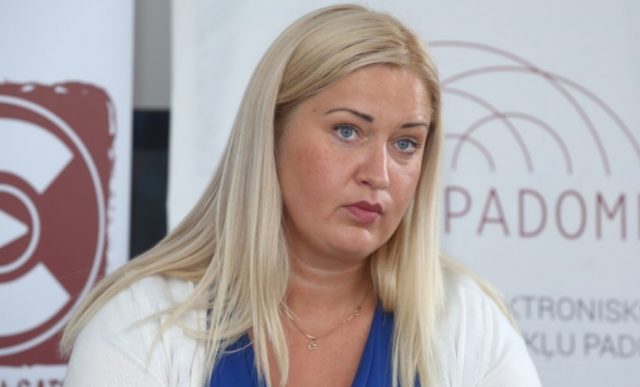Last year, at the Telco Trends Conference in Jurmala, Dace Kotzeva, Executive Director at “No, to Piracy in Latvia” (now called the Association “For Legal Content in Latvia”), spoke about the prevalence of piracy in Latvia: at least 97 thousand subscribers (total number of pay-TV subscribers was 480,000 in 2016) paid pirates. Because of this fact, the Government and legal operators lost some 120 euros yearly from each subscriber. Mrs. Kotzeva promised to intensify fighting against illegal content. A year on, the Mediasat asked her to tell us about the results of that antipiracy campaign.
How long has the Association been operating and what was its progress during that period?
The Society “No, to piracy in Latvia” appeared 1.5 years ago. In September 2016, we renamed it to the Association “For Legal Content in Latvia”. Thus, we want to emphasize the constructiveness of our activities, the fact that we are fighting for certain values, and not against someone. When the organization appeared, we did not fully realize the scope and specifics of the problem. To develop a deeper understanding of this issue and make out a “diagnosis”, we conducted a market research. It turned out that some 1/8 of the market operated illegally.
I believe that an important progress is that we managed getting the problem across to government institutions like the National Electronic Mass Media Council, the State Revenue Service, and various ministries. We run campaigns with journalists and contacted government officials. As a result, the problem was placed on the agenda, even it was completed the economic police by employing another 7 people. We held consultations for employees of different government agencies (about 30 people) on technical issues. In February 2017, that training was over and they set to work. At once, there appeared requests for piracy criminal cases. Over several months since February, it was managed cutting illegal market by 20%. Of nearly 100,000 subscribers who enjoyed illegal services, 18,000 switched to legal resources. The legal providers observed their subscriber base growth too.
What antipiracy practices do you consider the most efficient, and how are you going to apply them?
It is very essential to shape a public opinion and get the message across to audience that viewing illegal content is a theft. We are about to compete for an information campaign grant offered by the European Union Intellectual Property Organization (EUIPO).
We have been also working with entrepreneurs and advertisers so that they would not finance pirate websites. In the near future, we have a meeting scheduled with the Advertising Association.
What about blocking pirate resources? Is it spelled out in laws? Are provides obligated to block pirate websites?
The blocking is the competence of the economic police under a criminal proceeding. We are into discussions, whether providers should block websites. The blocking opponents speak about a threat to the liberty of speech, but I believe that this is not a question of freedom of expression, but an economic crime. Meanwhile, the police work very efficiently, they cope without a specific law on blocking websites by providers.
You will moderate the antipiracy panel at the Telco Trends Conference, so what are the issues to discuss there?
I am going to talk about the antipiracy progress in Latvia. Ross Biggam, Vice President Government Affairs EMEA at Discovery Communications Europe (UK), will share his copyright holder’s experience in protecting own content. Christopher Elkins, Chief Strategy Officer at MUSO (UK), will speak about a huge experience in piracy monitoring around the world. Alexey Byrdin, CEO of the Association “Internet-video” (Russia), will highlight techniques of working with advertisers. The discussion will engage market players from Estonia, Poland, Latvia and other countries.
















